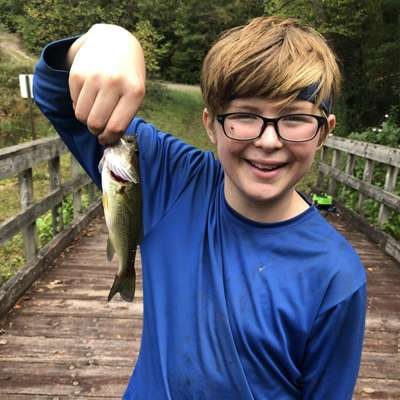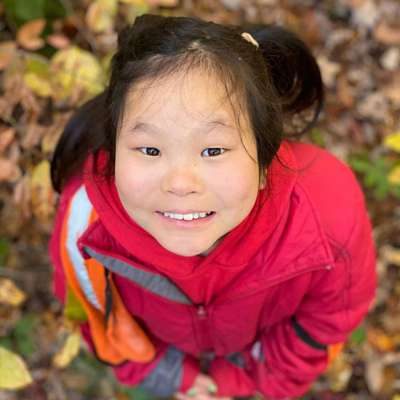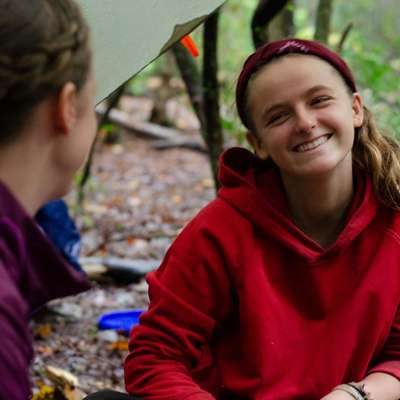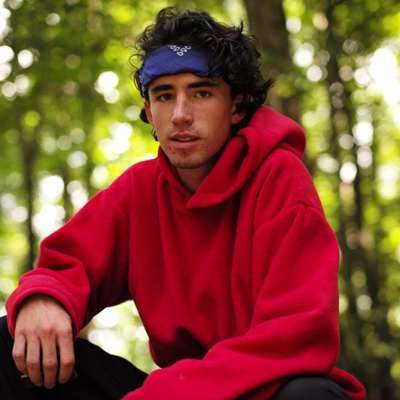Wilderness Therapy For High-Functioning Autism and Asperger's Syndrome
At Trails Carolina, we understand the unique challenges faced by youth and teens on the Autism Spectrum and their families.
Our mission is to provide a supportive, empathetic, and professional environment for youth and teens seeking therapy services designed to foster growth and self-confidence.
With an emphasis on individualized care in an outdoor setting, our experienced clinicians are equipped with the necessary tools to help your child achieve lasting improvements in their behavior, social and emotional skills, and overall development.

Our autism therapy services offer a blend of individual and group therapy, educational experiences, adventure programming, and experiential learning activities tailored to the specific needs of your child.
Through our compassionate and supportive approach, we strive to empower youth and adolescents with high-functioning Autism Spectrum Disorders to adopt new strategies for managing their challenges, improving interpersonal relationships, and unlocking their full potential.
At Trails Carolina, your child's well-being is our top priority. As they embark on their therapeutic journey, you can rest assured they are in the direct care of licensed, dedicated professionals who are committed to helping them grow into confident, independent individuals. Allow us to serve as a source of hope and support for your family as you navigate the challenges presented by Autism Spectrum Disorder together.
Here's How Our Program Helps Kids and Teens with Autism:

At Trails Carolina, we take a holistic approach to treating autism. Our master's level therapists create individualized treatment plans tailored to each student's unique needs. By combining wilderness therapy, adventure therapy, and equine relational programming, we support the growth and development of youth and teens on the autism spectrum in a caring and professional manner.
Why Nature is Healing for Kids with Autism
Spending time in nature offers many benefits to children with autism. The peacefulness of the wilderness provides a calming setting, away from overstimulating environments that can pose challenges for those on the spectrum.
Engaging in outdoor activities promotes adventure, exploration, and growth while helping youth and teens develop confidence and social skills.
Our wilderness therapy programs at Trails Carolina are designed to immerse teens in the healing power of nature.

The Trails Carolina Transition Model: Why Practicing Transitions is Important for Autistic Children and Teens
For children and teens with autism, transitions can be especially challenging. The Trails Carolina Transition Model focuses on helping our students develop essential life skills needed for successful transitions in their daily lives. Through repetitive practice and support, we aim to decrease anxiety and increase confidence in the face of change.
Equine Therapy and Natural Horsemanship for Autism
Equine therapy is an integral part of Trails Carolina's holistic treatment approach. Our unique equine relational programming helps youth and teens with autism build trust, non-verbal communication skills, and emotional intelligence. By fostering a strong connection between students and horses, we encourage self-discovery and lasting personal growth.

Accredited Academics for Autistic Children and Teens
In addition to our wilderness therapy programs, Trails Carolina offers accredited academics for students with autism. We strive to create a nurturing environment where students can achieve their full potential.
Parallel Family Programming for Parents of Autistic Children and Teens
Supporting the entire family is a crucial aspect of our approach at Trails Carolina.
Our Parallel Family Programming provides parents with resources and guidance to help them better understand and support their children with autism.
By engaging parents in the therapeutic process, we promote stronger connections and a more cohesive family unit.
What is Autism?
An Autism Spectrum Disorder (ASD) is a complex developmental condition that influences a child's behavior, communication, and social interaction. It is aptly termed a "spectrum" disorder due to its diverse presentation across individuals, ranging from severe to high-functioning.
Autism Symptoms
The expression of autism varies widely among individuals, encompassing a spectrum of characteristics.
Some children may exhibit subtle traits, while others may grapple with significant challenges that may require a more comprehensive combination of physical therapy, occupational therapy, and behavioral therapy.
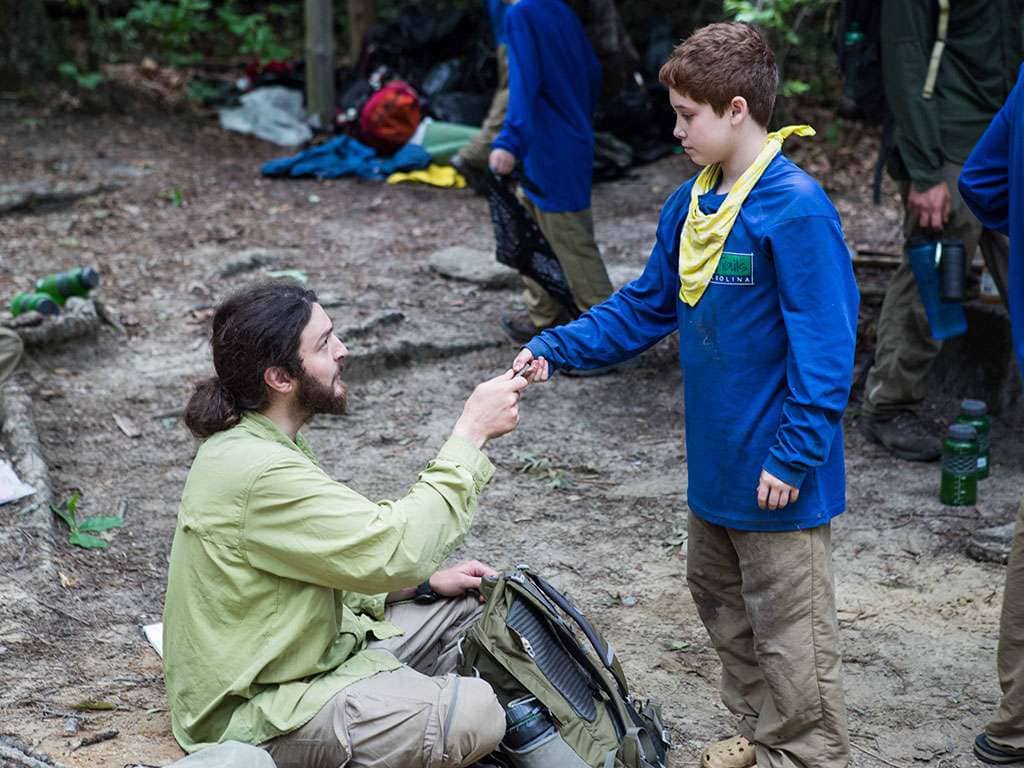
Our wilderness therapy program can help students on the autism spectrum gain confidence, improve their social skills, and learn to communicate appropriately and effectively.
Families come to us when their children are struggling with social, emotional, and behavioral challenges. Our therapeutic program gives students the support they need to work through these challenges and get their lives back on track.
Students benefit from an individualized approach, with clinicians and staff able to meet students where they are. Families need help in supporting their child’s unique needs and challenges.
With students on the spectrum, we typically see challenges such as:
- Inability to regulate emotions
- Difficulty communicating needs appropriately or effectively
- Trouble socializing with peers
- Low self-esteem and confidence
- Acting out behaviors
High-functioning Autism vs. Severe Autism
High-functioning autism, often associated with Asperger's Syndrome, is marked by fewer challenges in speech and cognitive abilities, whereas severe autism includes significant impairments in communication and daily living skills. Key differences may involve:
- High-functioning Autism: typical or above-average intelligence, better speech and language skills, less severe social and behavioral challenges
- Severe Autism: more pronounced difficulties in communication, greater challenges in daily living skills, and increased repetitive and restrictive behaviors
Regardless of the severity, those with an autism spectrum disorder are likely to experience a combination of the following symptoms.

Behavioral Symptoms
Individuals with autism may display unique or repetitive behaviors and have specific, intense interests. They might also have difficulties adjusting to changes in their routine and show an insistence on sameness.
For those with severe autism, early intensive behavioral intervention may be beneficial for long-term success.
Behavioral symptoms may include:
- Repetitive actions, like hand-flapping or spinning
- Stimming (self-stimulatory behavior)
- Rigidity in schedule or obsessive routines
- Difficulty transitioning between activities
- Sensitivity to sensory stimuli
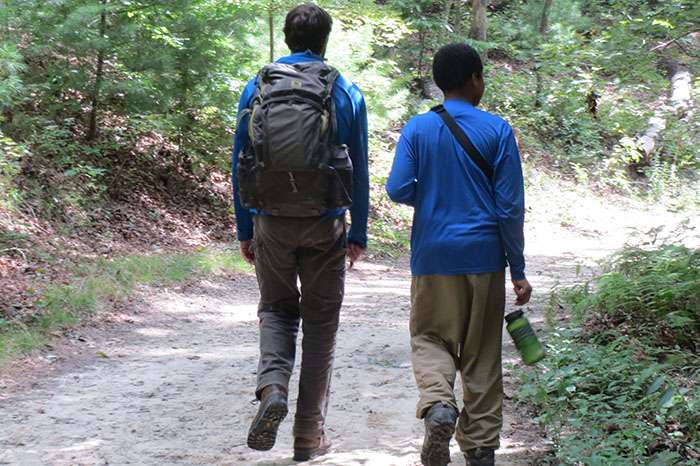
Social and Communication Symptoms
Social interaction can be challenging for those with autism, as they might have difficulty understanding non-verbal cues or recognizing emotions in others.
Children and teens with autism are more likely than their neurotypical peers to experience:
- Difficulties maintaining eye contact
- Challenges with understanding facial expressions and body language
- Struggles with initiating or maintaining a conversation
- Difficulty recognizing social cues and adjusting behavior accordingly
- Preference for solitary activities

Mental and Physical Autism Symptoms
Cognitive and physical symptoms of autism might not be as easily visible as behavioral or social indicators when it comes to early identification. However, these symptoms can significantly impact a child's daily life. They may include:
- Challenges with organization, planning, and time management
- Cognitive rigidity
- Differences in motor skills and coordination
- Learning differences or poor academic performance
Age and Gender-Specific Autism Therapy
Because autism is a developmental disorder, the signs and symptoms of autism can vary between children and teens.
For younger children, they may struggle with non-verbal communication and miss important social cues, impacting their ability to form relationships.
On the other hand, teenagers with autism may encounter difficulty as they navigate more complex social situations and new academic demands.
Additionally, we recognize that the behavioral patterns of autism can differ between boys and girls. Boys tend to display more externalizing behaviors, such as aggression and impulsivity, while girls often have subtler signs that could be mistaken for shyness or social anxiety.

To effectively diagnose and support children and teens with ASD, our team of licensed mental health professionals, certified educators, and dedicated Wilderness staff is committed to providing age and gender-specific autism therapy services designed to address the distinct needs of each group and each student.
As an empathetic and professional resource for parents of children and teens struggling with high-functioning Autism Spectrum Disorders, we aim to inspire hope and confidence that with the help of our personalized treatment plans, your child can overcome challenges and reach their full potential.
Our wilderness-based program utilizes a tailored approach, addressing the unique needs of children and teens with an Autism Spectrum Disorder to enhance their communication and social skills.
By providing the appropriate guidance and support, we believe that positive change and desired behavior is possible for young people on the autism spectrum.
Our Residential Program Groups
At Trails Carolina, we provide a supportive, healthy environment for a variety of age groups to receive treatment for various behavioral and mental health issues. Our residential therapy programs include options for preteen boys (10-13), preteen girls (10-13), teen girls (14-17), and teen boys (14-17).
We believe that segmenting groups by age and gender allows our team of mental health professionals, residential and field staff, and accredited academic educators to provide more focused and effective personalized care to each student. Additionally, evidence shows that using segmented peer groups helps students learn to build positive relationships among their own peers. This makes the transition back to traditional school settings easier for young people. And it helps our students learn how to interact and build healthy connections for life!
Co-occurring diagnoses with Autism
As your child with an autism diagnosis progresses through their adolescent years, it is important to be aware of the possibility of co-occurring diagnoses.
Individuals with autism may experience additional challenges such as Pathological Demand Avoidance (PDA), Attention Deficit Hyperactivity Disorder (ADHD), anxiety, and depression.
Recognizing the signs and symptoms of these co-occurring conditions can help to ensure your young person receives the appropriate support from mental health professionals.

PDA is a distinct profile within the autism spectrum, characterized by an extreme avoidance of everyday demands. This can manifest as extreme anxiety, obsessive behavior, and defensiveness. A young person with autism and PDA may struggle with daily tasks and interpersonal relationships, requiring tailored strategies to manage their complex needs.
ADHD is another common co-occurring diagnosis for individuals with autism. It is characterized by persistent inattention, impulsivity, and hyperactivity. ADHD can make it challenging for the young person to stay focused, follow instructions, and complete tasks, posing additional obstacles to their education and social development.
Anxiety is a prevalent concern for individuals with autism, as they often experience heightened sensitivity to their environment and social situations. Recognizing anxiety in teens with autism is crucial, as it can manifest differently from person to person. Common signs include increased avoidance, social withdrawal, and possible aggression. Providing an environment of understanding and support can help your young person cope with anxiety.
Depression is another mental health issue that can co-exist with autism. Challenges with social interactions, communication, and feelings of isolation can contribute to depressive symptoms in teens with autism. It is essential to monitor your young person's behavior for signs of depression, such as persistent sadness, loss of interest in activities, or changes in appetite and sleep patterns.
At Trails Carolina, we understand the complexities of these co-occurring diagnoses and are dedicated to providing empathetic and informative support for youth, teens and their families.
Our team of mental health professionals is experienced in helping individuals with autism, and we are committed to assisting them in building self-confidence and independence.
Traditional Methods of Autism Support for Children and Teens
As a parent or caregiver, your goal is to ensure your child with autism receives the best possible support to thrive and develop their communication skills.
Many traditional autism therapy options are available and can be tailored to the unique needs of children and teens on the spectrum.
- One widely recognized method of autism support is Applied Behavior Analysis (ABA), which focuses on teaching appropriate behaviors and social skills through positive reinforcement. ABA therapy is often implemented by mental health professionals, such as therapists and psychologists, to help children with autism improve their communication abilities and social interactions.
- Speech therapy is another beneficial service for children and teens with autism, as it directly targets communication skills. Working with a licensed speech therapist will enable your child to develop improved language comprehension and expression and address nonverbal communication challenges.
- Group therapy can be an essential aspect of autism therapy services as it provides a supportive environment for children to practice and improve their social skills. Surrounded by a community of peers with similar challenges, children and adolescents can work on increasing their self-esteem as they engage in group activities, role-playing, or relationship-building exercises.
- Occupational therapy is yet another valuable service that can be beneficial for children and teens with autism. With the support of an occupational therapist, your child may be able to improve their daily living skills, including self-care, sensory integration, and motor coordination.
- It is crucial to choose the most appropriate combination of therapies for your child, as each individual with autism presents unique strengths and challenges. With the right mix of autism therapy services, you can foster positive growth, develop essential skills, and ultimately improve your child's overall quality of life.
In some cases, alternative approaches to autism treatment, such as wilderness therapy, can be helpful. Wilderness therapy, like the program at Trails Carolina, focuses on improving self-esteem for youth and teens on the Autism Spectrum in an outdoor setting. This method combines therapeutic support with nature-based activities, providing a different experience for youth and teens who may not respond well to traditional therapy options.
Get started today
Contact us today to learn how Trails Carolina can help your family
Trails saved my daughter’s life. Amanda is an amazing human and a brilliant therapist. I am so grateful to her, Science Steve, and the other wonderful people who could reach my daughter at a time when I could not.
Margot Lowman August 2022
Great life changing experience for our son. After becoming addicted to gaming during covid he was very depressed. At Trails he experienced the wilderness, Science Steve, learning survival skills and top notch therapy and support etc… I highly recommend! This gave our son and our family a renewed family bond full of love and excitement about his bright future.
Winnifred Wilson July 2022
Outstanding clinical work and superb staff! There’s a great culture at this company and it shows with how they engage with families/clients.
Kristin Brace June 2022
FAQs
At Trails Carolina, we provide a range of therapies tailored to the needs of young people with autism.
Our licensed clinicians offer both individual and group therapy sessions, ensuring a well-rounded approach to treatment.
We also incorporate adventure programming and experiential learning activities to enhance the therapeutic process.
Wilderness programs, like the one at Trails Carolina, help young people with autism build self-confidence and foster independence.
By participating in outdoor activities, students are able to develop problem-solving skills and adaptability that translate to daily life.
Moreover, the wilderness setting offers a unique opportunity for reflection and growth, away from the distractions of everyday life.
At Trails Carolina, we recognize the importance of involving families in the therapeutic process.
Our program includes family therapy components, where we work together with parents and caregivers to develop effective communication strategies and strengthen family relationships.
Additionally, we offer resources and support to help families navigate the challenges associated with autism and mental health issues.

